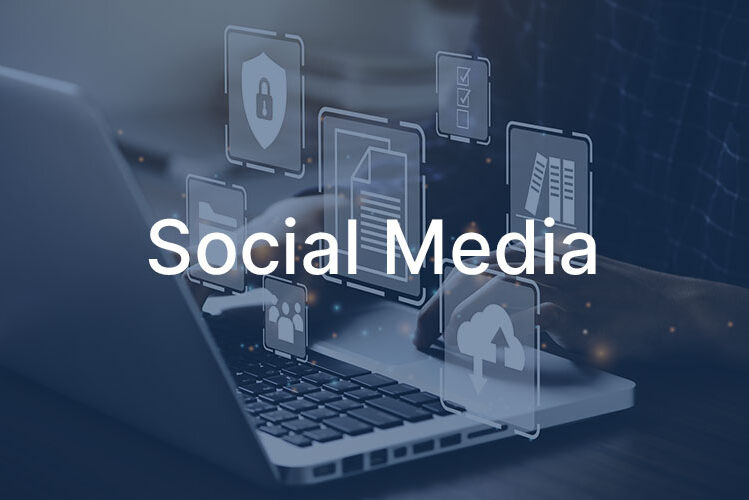The Smart Business Owner’s Guide to Social Media in 2025
Remember when having a Facebook page was optional for businesses? Those days are long gone. Today, your customers expect to find you on social media—and they’re making buying decisions based on what they see (or don’t see) there.
But here’s the challenge: social media keeps evolving. What worked five years ago might hurt your business today. Let’s cut through the noise and focus on what actually matters for small businesses right now.
Why Social Media Still Matters (But Differently Than Before)
Social media isn’t about collecting followers anymore. It’s about showing up where your customers already spend their time. Consider this: the average person spends over two hours daily on social media. That’s two hours when they could discover your business, read reviews, or see that project you just completed.
More importantly, social media has become a trust signal. When potential customers can’t find you online, they wonder if you’re still in business. An outdated social page is almost as bad—it suggests you might be equally negligent with customer service.
The Platforms That Actually Matter for Small Businesses
Facebook/Meta: Still the Foundation Despite what you might hear, Facebook remains essential for local businesses. Why? Because that’s where your customers look for:
- Business hours and contact information
- Reviews and recommendations
- Updates about services or closures
- Community connections and local events
Your Facebook page often ranks high in Google searches for your business name, making it a crucial part of your online presence.
Google Business Profile: Your Most Important “Social” Platform While not traditionally social media, your Google Business Profile acts like one. It’s where customers leave reviews, see photos, ask questions, and get directions. For local businesses, this is often more important than any traditional social platform.
Instagram: Show Your Work If your business is visual—construction, landscaping, restaurants, salons—Instagram lets you showcase results. Before-and-after photos, completed projects, and behind-the-scenes content build trust and demonstrate quality.
LinkedIn: B2B Connections If you serve other businesses, LinkedIn matters. It’s where decision-makers research vendors and where your professional reputation lives.
NextDoor: Local Visibility For service businesses, NextDoor connects you directly with neighborhood customers actively seeking recommendations.
What About TikTok, X (Twitter), and Others?
Unless you have dedicated time and a clear strategy, these platforms often drain resources without delivering results. Most small businesses succeed by mastering two or three platforms rather than spreading themselves thin across many.
The Biggest Social Media Mistakes Small Businesses Make
Treating It Like a Billboard Nobody follows businesses for sales pitches. Share useful information, answer questions, showcase your expertise. The selling happens naturally when people trust you.
Posting and Ghosting Publishing content then ignoring comments and messages damages your reputation. If you can’t respond within 24 hours, you’re on too many platforms.
Buying Followers Those “10,000 followers for $99” offers? They’re bots that make your business look fraudulent. Real engagement from 100 local followers beats 10,000 fake ones every time.
Ignoring Reviews Not responding to reviews—especially negative ones—suggests you don’t care about customer service. A thoughtful response to criticism can actually win you customers.
A Realistic Social Media Strategy for Busy Business Owners
Start Where Your Customers Are Ask your best customers where they found you. Focus your efforts there first.
Claim and Optimize Your Profiles At minimum, secure your business name on major platforms. Fill out all information completely, even if you’re not actively posting.
Quality Over Quantity One thoughtful post weekly beats seven rushed ones. Share:
- Completed projects or happy customers
- Helpful tips related to your industry
- Community involvement
- Behind-the-scenes glimpses of your work
Set Boundaries Dedicate 30 minutes twice weekly to social media. Use scheduling tools to maintain consistency without constant attention.
Measure What Matters Forget vanity metrics like follower count. Track:
- How many people call or email from social media
- Review quantity and quality
- Website visits from social platforms
- Actual customers generated
When Social Media Becomes Overwhelming
If managing social media feels like a second job, you have three options:
- Simplify: Focus on one platform and do it well
- Systematize: Use scheduling tools and templates
- Delegate: Hire someone to handle it (but stay involved in strategy)
Many businesses find success with a hybrid approach: they handle customer interactions while someone else manages content creation.
Integrating Social Media With Your Website
Your website and social media should work together, not compete. Your website is your home base—the place you control completely. Social media drives traffic there.
Make sure your website:
- Links to your social profiles
- Displays recent reviews or posts
- Makes it easy to share your content
- Captures leads from social traffic
The Bottom Line on Social Media
Social media isn’t optional anymore, but it doesn’t have to consume your life. Choose platforms strategically, engage authentically, and remember that social media supports your business—it doesn’t replace quality work and customer service.
The best social media strategy is the one you’ll actually maintain. Start small, be consistent, and grow your presence as you see results.
If you have web development questions, or are in need of having a website developed, please feel free to contact me at info@ecurtisdesigns.com.





